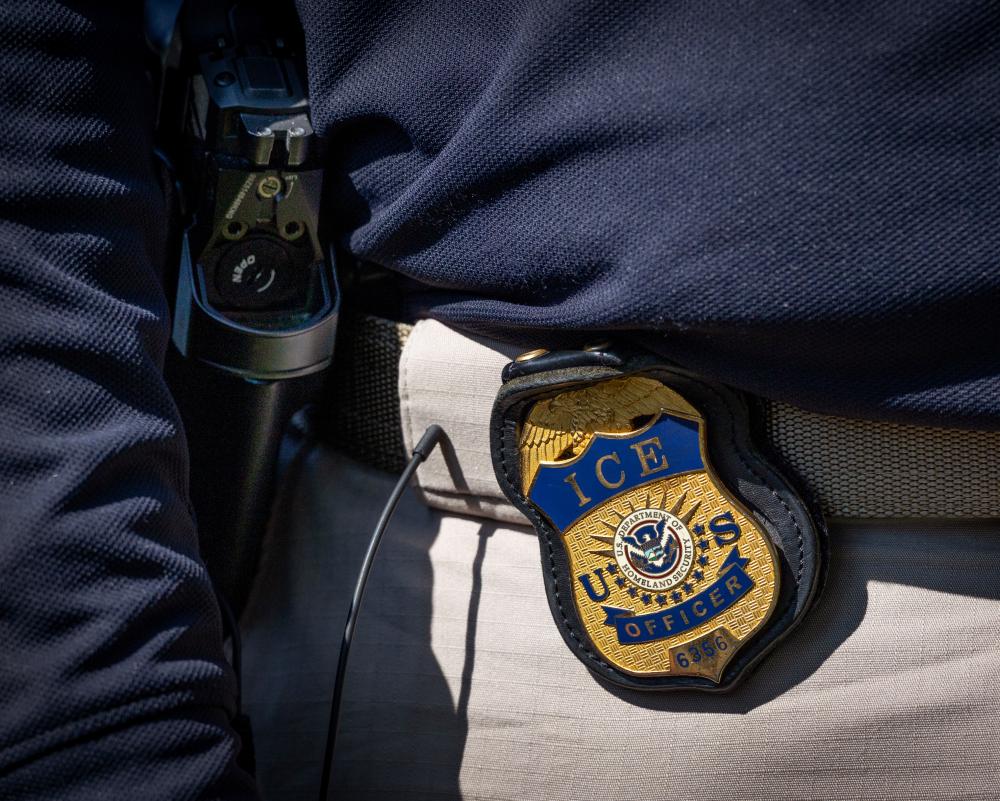The Department of Homeland Security ramped up immigration raids in Illinois on Monday afternoon in an operation they dubbed “Midway Blitz,” a continuation of military-themed rhetoric promoting Donald Trump’s larger crackdown on sanctuary cities. Chicagoans have turned out by the thousands in protest suggestions that the president would attempt to send national guard troops into the city, and in opposition to similar acts that courts have rules as illegal or unconstitutional.
“This ICE operation will target the criminal illegal aliens who flocked to Chicago and Illinois because they knew Governor Pritzker and his sanctuary policies would protect them and allow them to roam free on American streets,” DHS said on X today. “President Trump and Secretary Noem stand with the victims of illegal alien crime while Governor Pritzker stands with criminal illegal aliens.”
But as the administration has signaled similar pursuits in Democratic-led cities across the country, the legal parameters of federal law enforcement could be tested. Here’s what Trump can, and cannot, do in cities such as Chicago.
Related: Chicago-area residents warned federal agents may be about to arrive
What are the limits of the civil authority of Immigrations and Customs Enforcement (Ice) officers?
Ice, which is housed in the Department of Homeland Security, primarily engages in enforcement and removal operations – finding, detaining and deporting undocumented immigrants. Ice agents can arrest any undocumented immigrant who has a deportation order issued by an immigration court. An Ice agent can arrest someone who in plain view is in the process of attempting to enter the United States unlawfully or if it has “reason to believe” that someone is unlawfully in the United States and is likely to escape before a warrant can be obtained.
Those reasons can be flimsy. More than 300 Korean employees working for firms building a battery plant in south Georgia were arrested last week in a raid that warrants suggest had targeted Central American construction workers. The US supreme court on Monday temporarily set aside a lower court’s order barring agents from stopping people without reasonable suspicion they are in the country illegally aside from an accent or the color of their skin.
How else might Homeland Security agents engage in law enforcement in Chicago?
A different DHS unit – homeland security investigations (HSI) – targets border-related crimes such as the trafficking of weapons, drugs and people, as well as the kind of fraud, money laundering or counterfeiting that rises to a national security risk. HSI is part of Joint Task Force Alpha, partnered with the Drug Enforcement Agency, FBI and other federal agencies to fight human trafficking from El Salvador, Guatemala, Honduras, Mexico and other countries. The US attorney general, Pam Bondi, announced last week that Joint Task Force Alpha would expand to cover the Canadian border and all maritime borders, which includes Chicago’s port.
Under other circumstances, HSI might also partner with state investigators and local police to track down fugitives who are also violating immigration law, to work on counterterrorism cases or to investigate and prosecute gangs and cartels that are violating both state and federal law.
However, the legal, moral and political conflict between the Trump administration and state leaders like Illinois governor JB Pritzker or Chicago mayor Brandon Johnson makes this kind of partnership unlikely. Johnson signed an order on 30 August declaring that Chicago cops “will not cooperate with or enable any unlawful or unconstitutional actions undertaken by federal law enforcement or U.S. Armed Forces within the City of Chicago”. Illinois law largely prohibits law enforcement from participating in actions to enforce immigration law.
What does this federal immigration enforcement surge look like?
About 300 federal agents are using North Chicago’s Naval Station Great Lakes as the logistical hub for ramped-up operations, according to ABC Chicago. That’s consistent with earlier reports that the White House intended to use the port as a staging area. The White House has not announced how many federal agents will be redeployed from other states to the Chicago area for this operation.
Related: US supreme court ‘effectively legalized racial profiling’, immigration experts warn
Has Trump called in the national guard?
Not yet.
Trump threatened – as he has done many times – to deploy the national guard to Chicago to “clean up” the city’s crime, despite decreasing gun violence rates there. But his activation of national guard units in the federal takeover of Washington DC’s policing and the use of troops during an immigration enforcement surge in Los Angeles in June gave the threat more teeth.
A federal judge in California sharply chastised the administration for its use of military troops during the Los Angeles operation, declaring it a violation of the Posse Comitatus Act, a federal law prohibiting the use of troops in law enforcement. And the attorney general of Washington DC is suing the administration to force an end to the use of national guard troops there as well.
What is the Posse Comitatus Act?
The act consists of just one line. “Whoever, except in cases and under circumstances expressly authorized by the Constitution or Act of Congress, willfully uses any part of the Army, the Navy, the Marine Corps, the Air Force, or the Space Force as a posse comitatus or otherwise to execute the laws shall be fined under this title or imprisoned not more than two years, or both.”
It means, in essence, that the military cannot and should not meddle in the affairs of civilian government. In practice, it bars commanders from ordering troops to conduct “arrests, apprehensions, searches, seizures, security patrols, traffic control, crowd control, riot control, evidence collection, interrogation, or acting as informants”, as given in the order rebuking Trump’s use of troops in Los Angeles.

